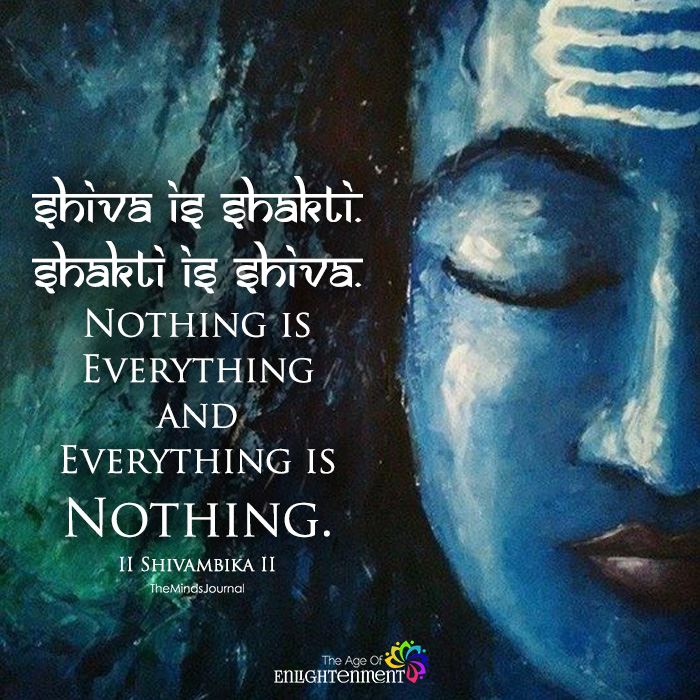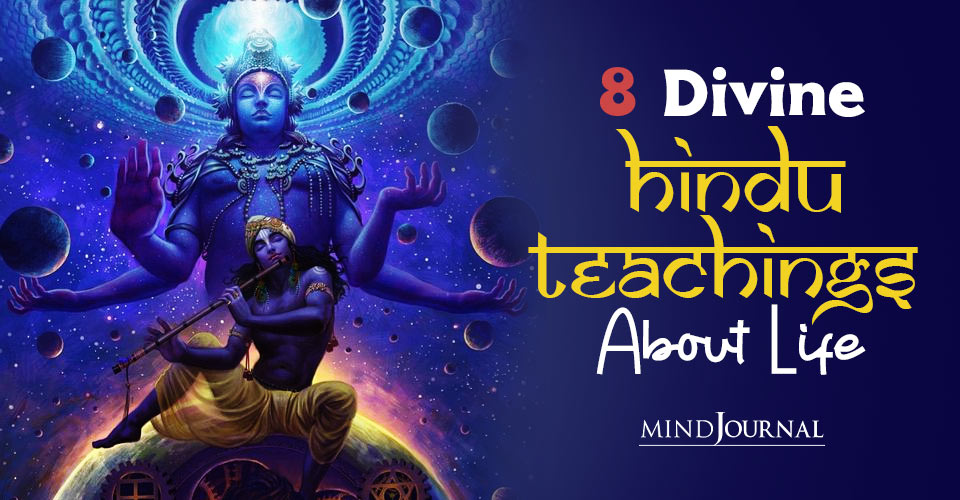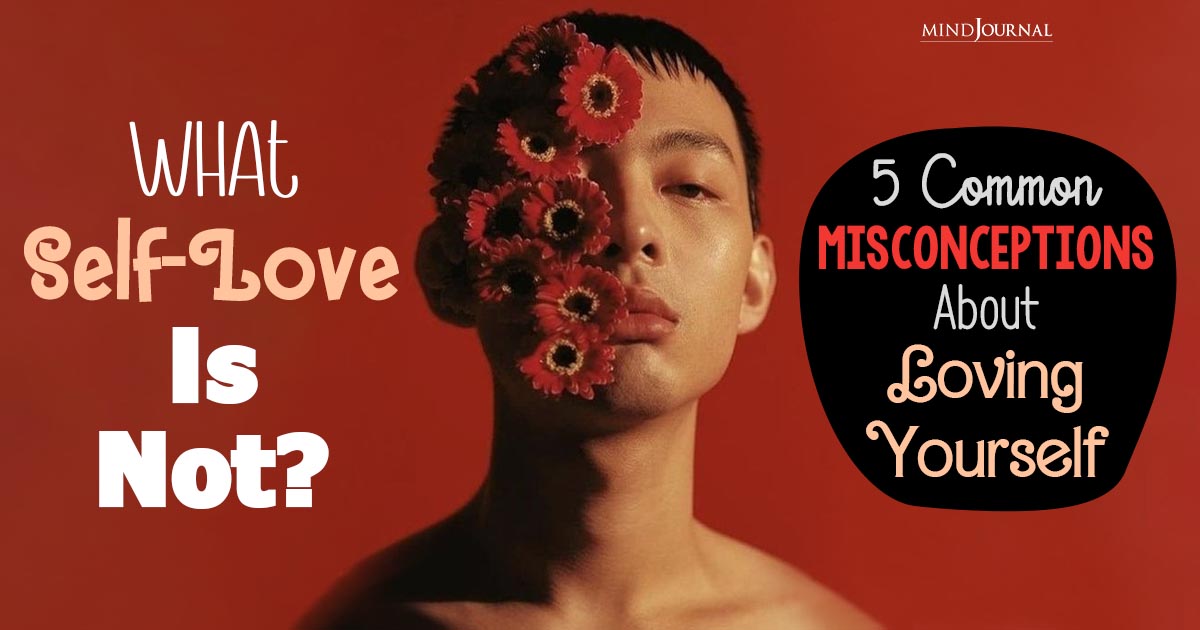Life can often feel overwhelming and confusing as we navigate through the challenges life throws at us. Religion and spirituality can often show the light and steer us towards the right direction when we feel lost and hopeless. Hindu teachings can help us better understand the meaning of life.
Hinduism, the oldest religion in the world, can teach us a lot about life, even if you are not a Hindu or even religious. Here are some hindu teachings about life –
Meaning of life in hinduism

While there are different sects, the basic spiritual principles expressed in ancient texts like the Vedas are followed by all practitioners. According to hindu teachings, the soul or the genuine self is known as Atman. However, death does not signify the end of the self as the soul can be reincarnated repeatedly until moksha is achieved. As the soul is everlasting, it goes through a cycle of rebirth and takes the form of a new physical body after death. This never-ending cycle of birth, life, death and rebirth is known as samsara. However, the process of reincarnation and rebirth is guided by the law of karma.
According to the law of karma, our thoughts, words, behaviors, actions and deeds in our present life affects our next life. If our deeds are good, our next life will be full of happiness, while bad deeds can lead to suffering in the next life. Karma keeps accumulating and does not leave any scope for forgiveness, leading to unavoidable consequences. However, one’s karma is not associated with their relationship with Brahman, the Supreme Being. This is what hinduism teaches us about life.
Related: 40+ Interesting Facts About Hinduism That Will Blow Your Mind
Life lessons to learn from hindu teachings
If you wish to understand the meaning of life according to the beliefs of hinduism, then here are some important hindu teachings that you should know about –
1. Respect everyone
Hindus believe that the divine resides in each and every individual. The soul of the one (jivatma) is a part of the soul of the universe (Paramatma). Respecting other human beings is a way of showing respect to the almighty.
2. Always be truthful
Our soul is united with the Supreme Being through the principle of truth or satya. Truth unites all life with the divine and so one should not be dishonest or fraudulent. When you speak the truth you don’t regret your decisions.
3. Respect all living beings
One of the main lessons of hinduism is to be kind to all forms of life. Ahimsa or non-violence is one of the core principles in hinduism which tell us to be benevolent, tolerant and loving towards all living creatures, as they are creations of God. Each and every animal is in some way spiritually associated with Hindu gods, goddesses and deities.
4. Detach from attachment
The hindu philosophy of Aparigraha, translated as non-possessiveness or non-attachment, tells us that we do not possess anything. Hence, we should not get attached to anything. We should aspire to live a simple life and pursue only those materials or comfort that are necessary for meeting the needs of daily life. This is one of the most basic hindu teachings about life.
Related: The True Meaning Of Karma: Understanding Karma, Karmaphala and The 12 Laws
5. Don’t abuse others
Acauryaḥ or Asteya refers to an important virtue in Hinduism, which means non-stealing. It teaches us that not only we should not steal any material possessions from others, we shouldn’t steal others’ accomplishments, experiences, time or mental peace. We should not abuse or exploit others nor deprive them of what is rightfully theirs.
6. Choose forgiveness
According to the ancient Hindu scripture The Bhagavad Gita, Lord Shri Krishna taught his disciple Arjuna that the simplest way to overcome sorrows is to follow dharma (our duty in life) with utmost sincerity. Another way to overcome sorrow and find inner peace is by practicing forgiveness. According to hinduism teachings, we should always choose to forgive others and ourselves as it allows us to live without anger, suffering and regret. Forgiveness sets us free from past trauma and heals our mind and soul.
7. Do not fear death
In hinduism, death signifies a new beginning in the cycle of samsara. The primary objective of the soul is to attain moksha or salvation, it is not to stay tied up in the temptations of life. While we should live our lives to the fullest, we should not be afraid of death. Rather we should embrace death and focus on uniting with the divine. Life and rebirth is a form of punishment for not learning from our mistakes, while death allows us to be liberated from samsara and reincarnation, and be one with Brahman, the ultimate reality in the universe. This is one of the most important hindu teachings and beliefs.
8. Choose to smile when in pain
According to the teachings of Lord Krishna, we should always smile, whether we are in a stressful situation or a favorable one. When there is a smile on your face, you will be better able to deal with challenges, instead of feeling overwhelmed or doubting yourself. Smiling helps us develop a positive attitude towards life and cope better with pain.
Related: What Is Brahma Muhurta and How It Can Help You In Manifesting Your Dreams?

Stages of life in hinduism
According to hindu teachings, there are four primary phases in life known as ashrama in Sanskrit. The four stages of life include –
1. Brahmacharya
The student who is obedient to his/her guru or teacher and is characterized by devotion & chastity.
2. Grihastha
The householder, who is responsible in marriage and parenthood, supporting their family and fulfilling duties to ancestors and gods.
3. Vanaprastha
The forest dweller, who withdraws from the material world, hands over responsibilities to the next generation, pursues solitude and engages in yogic practices.
4. Sannyasa
The religious ascetic who has renounced their home, possessions and the world. They wander around to attain moksha (freedom from reincarnation) and to unite with Brahman (the Supreme Being), while begging for food.
All the stages of life in hinduism complement each other and drive us to attain self-actualization and enlightenment.
Related: Thrive In Cosmic Vibrations: Why You Must Start Chanting Mantras According To Science
Purpose of life according to hinduism
What is the purpose of life in Hinduism? According to hindu teachings, human beings have a four-fold purpose in life known as Purushartha, which can be translated as the objects of human pursuit. It involves 4 objectives or goals a human being must pursue in their life. Here are the aims of life in hinduism –
1. Dharma
Dharma refers to pursuing moral values, acting ethically, being righteous and virtuous & fulfilling your duty in life by observing laws and customs. It involves certain behaviors that are in accordance with the principle of natural order which controls everything in the universe. Dharma also means paying our debt to the universe. In Hinduism, we are born with certain debts to God, to parents, to other human beings and to all living creatures. Dharma requires us to repay this debt.
2. Artha
According to hindu teachings, the second purpose of life for all human beings is pursuing wealth, material prosperity and success. Artha can be translated as the “means of life” and involves resources and activities that allow you to build the life we want for ourselves and for our loved ones. It is associated with wealth, economic well-being, career success, and financial security. However, to attain this wealth and prosperity, we need to be moral and ethical and be tied to the principles of Dharma.
Related: Spiritual Meanings Of Finding Money On Your Path: 7 Divine Messages
3. Kama
Kama is associated with the pursuit of love, pleasure of all types and simply enjoying life. While it may involve wanting to be loved, sexual desire, sensual pleasure, kama also refers to psychological values and creative pursuits and satisfaction. In the broader context, kama may involve any passion, desire, sensual pleasure, wish, affection or the aesthetic appreciation of life. However, the pursuit of pleasure should not come at the cost of sacrificing the other three purposes of life namely, Dharma, Artha and Moksha.
4. Moksha
The most important and most complicated purpose of life according to hindu teachings, is the goal of Moksha. It refers to the pursuit of self-realization, liberation, enlightenment and salvation. While all human beings must pursue moksha or mukti, it may often take more than one lifetime to truly experience salvation. However, it is only through self-actualization and enlightenment we can truly free ourselves from the cycle of death, reincarnation and samsara, and unite with God or the Supreme Being. Moksha is the ultimate goal of human life and is achieved through self-knowledge, self-awareness and freedom from ignorance.
What hinduism says about life after death

Due to the cycle of samsara, when we die we are often reincarnated or reborn in a different physical body, whether human or animal or even an insect, as the soul or atman is indestructible. It is believed that while the soul may reincarnate immediately after death, it may also exist in a different spiritual realm for some time, such as in swarg (heaven ) or narak (purgatory), before it is reborn. We may be reborn as an animal if we are unable to learn from our mistakes and grow during our human life. Living in accordance with the Purushartha or the four-fold purpose of life can lead us to moksha where our soul can unite and become one with the Supreme Being or Brahman.
“Even as water becomes one with water, fire with fire, and air with air, so the atman becomes one with the Infinite Atman (Brahman) and thus attains final freedom.” – Maitri Upanishad 6.24
Hindu teachings can help us learn more about life after death. According to the Brihadaranyaka Upanishad, when our soul leaves our physical body, our life breath or prana shakti departs as well. The soul is then bestowed with our specific consciousness, knowledge, experiences and deeds. The atman or the soul leaves the old physical body and goes in search of a new, better physical form that is blessed with divine energy. However, this process is governed by the law of karma, as doing good can lead to a good life in our next life, while doing evil can have negative consequences during our rebirth.
Last rites and funeral rituals are practiced in hinduism to prevent the soul from entering its old physical body.
Related: 5 Secrets Of The Infinity Symbol ∞
Hindu teachings about life
There is a lot we can learn from Hinduism once we understand how life is perceived by this ancient religion. Here’s what we can learn from hindu gods and goddesses so that we can build a better life for ourselves-
1. Your abilities matter more than your appearance
Lord Ganesha helps us understand that our looks should not be a representation of our capabilities, strengths and power. The elephant head deity is praised worldwide for his benevolence and wisdom and loved for his unique appearance.
2. Strength lies in being humble
Lord Shiva teaches us that even when you are powerful, you should stay humble and live a simple life filled with peace and love.
3. Women are always empowered
Goddess Parvati shows us that women are the ultimate symbol of power. However, in love, a man and a woman (Shiva and Parvati) complete each other and can be weak without the other.
4. We are bound by limits
Through his Vaman avatar, Lord Vishnu teaches us that we can’t have everything we want in life. Everything has certain clauses and limitations. Hence, one should not be overly proud of their materialistic possessions.
Related: 7 Laws of Shiva Karma That’ll Help You Attain The Highest Form of Existence
5. Love thrives in separation
Lord Krishna, in his relationship with Radha, teaches us that we should not love with any condition. Love should not be bound by lust. We should also learn to let go of the person we love. Love should be eternal mental love (parakiya rasa), where you share the same feelings of love and kindness even in separation. This is one of the most beautiful hindu teachings.
6. Being loyal is divine
Lord Hanuman shows us the value of loyalty and service as devotion to our loved ones will always be praised, appreciated and cherished.
7. There is always a bigger picture
Through the Bhagavad Gita, Lord Krishna, the eighth avatar of Lord Vishnu teaches us that in life whatever happens, happens for a reason or a good cause. Nothing is ever truly an accident, there is always a reason behind everything… a bigger picture which we often miss. Hence, we should not cry about what has or hasn’t happened. Simply accept it as the will of God and let it go.
8. Food is a blessing
According to hindu teachings, food is regarded as a blessing from Goddess Annapurna who blesses all humans and animals alike. Hence, we should not be greedy about food, only take how much we can comfortably consume and should never waste food as it will be disrespectful to the goddess.
Related: 8 Mystical Meditation Mantras That Will Raise Your Consciousness
Hinduism is not a religion, it’s a way of life

You don’t necessarily need to be a Hindu or convert to Hinduism to believe or practice hindu teachings in your life. Understanding the basic tenets of Hinduism can help you answer the question “How does hinduism affect daily life?” It can make you more aware of yourself and the world around to build a better, and happier life pregnant with inner peace, contentment, and satisfaction.
Hinduism provides us the guidance we need to elevate our lives, attain enlightenment and unite with the Supreme Being.
Related: 60+ Best Karma Quotes That Will Make You Believe In Fate











Leave a Reply